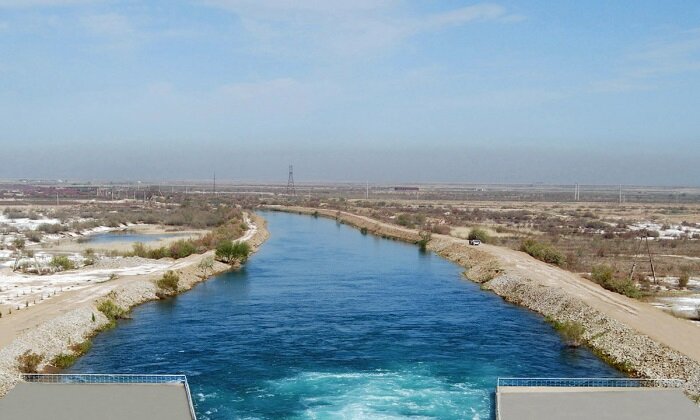He underlined that the "old guard" won’t make radical changes.
 The concept of freedom of speech in any country has often been more than just an element of democracy and civil society. Censorship in mass media, the detention of activists, protest participants, the “horde” of political prisoners - all this can be a reason for starting conflicts within the country and an opportunity for pressure from Western countries. For example, during the time of President Islam Karimov, big foreign companies and banks accused his regime of violating democratic norms and left the republic. The arrival of the new leader, Shavkat Mirziyoyev, was “saturated” with the spirit of liberalism. CentralAsia.news decided to find out how things have changed with freedom of speech in Uzbekistan.
The concept of freedom of speech in any country has often been more than just an element of democracy and civil society. Censorship in mass media, the detention of activists, protest participants, the “horde” of political prisoners - all this can be a reason for starting conflicts within the country and an opportunity for pressure from Western countries. For example, during the time of President Islam Karimov, big foreign companies and banks accused his regime of violating democratic norms and left the republic. The arrival of the new leader, Shavkat Mirziyoyev, was “saturated” with the spirit of liberalism. CentralAsia.news decided to find out how things have changed with freedom of speech in Uzbekistan.
Another Karimov
It is no secret that freedom of several opposition leaders and journalists in the 90s of the last century was forfeited due to criticizing the first President Islam Karimov in the media. State authorities also punished the deputies of the first parliament of an independent country, who adopted the Declaration of Sovereignty, created the Constitution, criticized the activities of the head of the state. After critical statements and publications, Karimov even ordered a journalist who was his relative to be sent to a mental hospital for treatment.
According to one theory, according to publications, the first president reacted less critically to criticism until 1994, trying to focus on efficient work rather than on settling of scores. In other words, officials could have asked him about the situation in the state and he took the information into account when making decisions. Since the mid-90s, Karimov began to divide people into "friends and enemies", concentrating the fullness of power in his hands and eliminating dissenters.
"Liberal Wind" by Mirziyoyev
The head of the Society of Political Emigrants of Central Asia Bahrom Hamroev, during interview with CentralAsia.news correspondent, said that some changes were made in Uzbekistan by president Shavkat Mirziyoyev. The expert noted that the current country’s leader urged journalists not to be afraid to speak out, criticize the actions of the authorities. However, there are no real fundamental shifts regarding freedom of speech in Uzbekistan. Khamroev emphasizes that he is not surprised, because Mirziyoyev himself participated in the creation of the system during the reign of Karimov, heading the government from 2003 to 2016.
- Of course, there is no censorship in the literal sense. The materials do not have to get preliminary approval in any state bodies, however, I repeat, the media in Uzbekistan themselves are in the position of executive bodies, and journalists are officials. Even the media and journalists who are not funded by the government are forced to focus on the expectations of the authorities, and no one takes the risk to be on the opposite side. The so-called “editorial policy” successfully replaces censorship, - commented Bahrom Khamroev.
New leader but the old staff
The expert emphasizes that the Uzbek media doesn’t change the staff. It consists of those who can work under the supervision of secret services during the Karimov’s period. There are some young bloggers, but they only write laudatory materials about Mirziyoyev’s policies. Well, the development of the Internet space has been given much more attention.
Khamroev drew attention to the fact that criticism of the authorities is indeed published, but this applies to grassroots ranks and egregious cases. The expert stressed that similar things were done under Islam Karimov.
- The only thing that deserves some respect is that the information policy of the authorities has become more flexible and sophisticated, but its core has remained the same - tight control of the information space and the formation of the agenda by the state. In my opinion, this situation vividly demonstrates the level of pluralism in Uzbekistan, - says the source.
Bahrom Khamroev drew attention to the tacit ban on the publication of materials regarding the first president and his policy. The expert suggested that Mirziyoyev wants to distance himself from his predecessor when he was an active participant in the relevant political processes.
- Obviously, Mirziyoyev wants on the one hand to distance himself from his former leader, and at the same time, being an active participant in that policy, he is scared of even indirect criticism to his person, - said the expert.
He convinced the West
The course towards liberalism in Uzbekistan did not go unnoticed in the West. Although Khamroev marked that the country is still far from democracy, he noted that the attitude to the republic has changed in the Western media, the current government is practically not criticized. Even international human rights organizations almost stopped responding to Uzbekistan, directing at a mitigation of the situation in the republic.
- Moreover, we shouldn’t underestimate the fact that Uzbekistan continues to traditionally successfully exploit the Islamist map. A picture of the existence of a large-scale Islamic opposition, ready at any moment to turn Central Asia to the Middle Ages, is artificially created. Even though the real opposition was physically destroyed in the early years of Karimov’s presidency, this legend remains in demand until now, both for internal and external consumption. In this regard, the West prefers to deal with any type of authoritarian regime, if it overwhelms mythical radicals, - concluded the expert.
We, the editorial staff, would like to add that during Shavkat Mirziyoyev’s presidency, political prisoners have been released. His reforms in politics and economy contributed to the fact that the European Bank for Reconstruction and Development renewed partnership with Tashkent.






